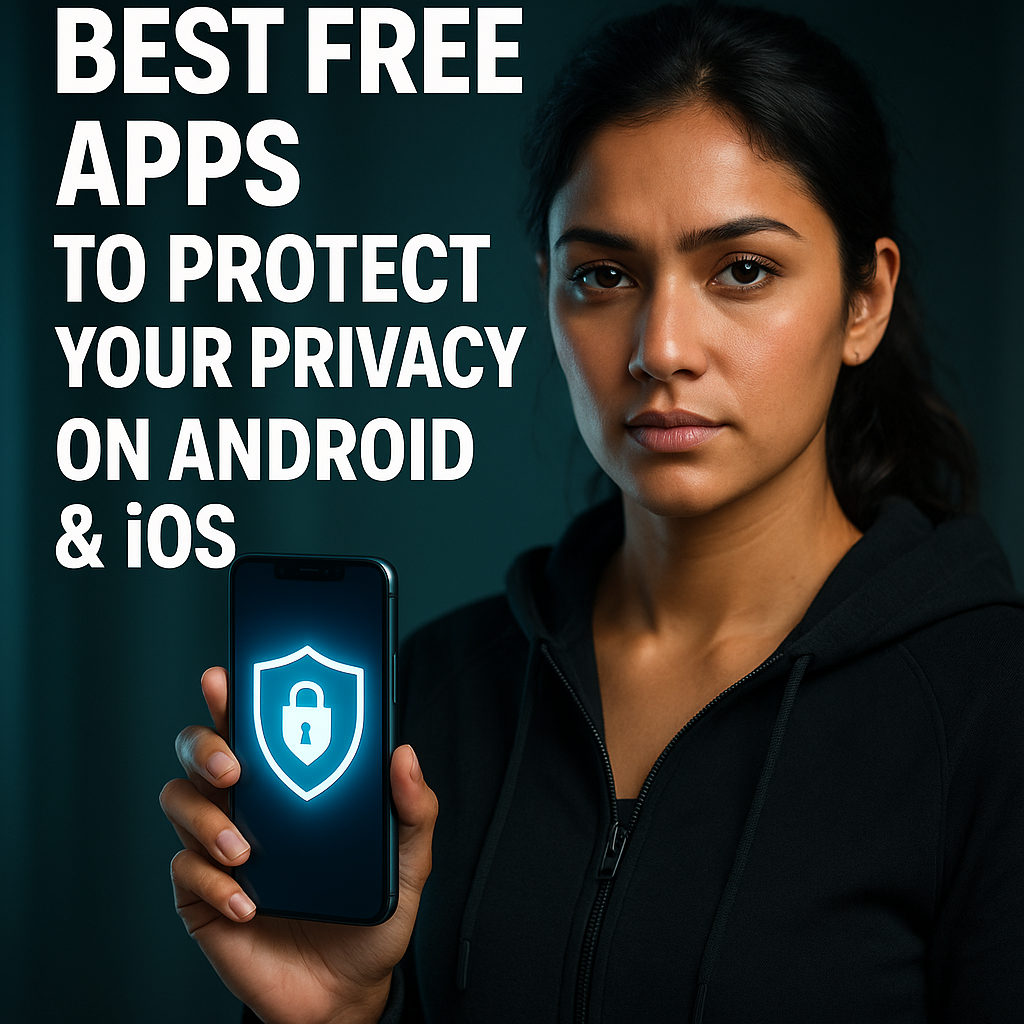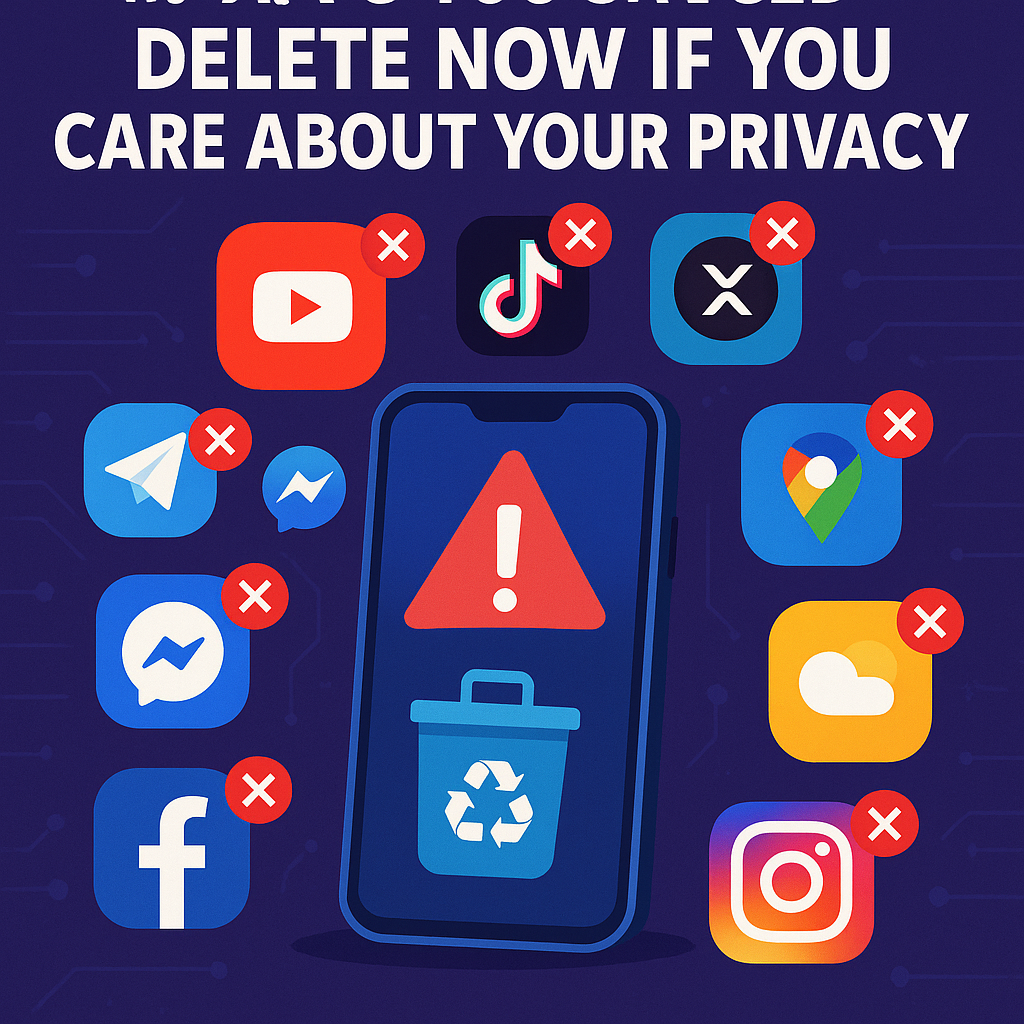The 5 Best Free Apps to Protect Your Privacy on Android & iOS (2025)
 By The Security Planet
By The Security Planet

In a digital world where your personal data is a valuable commodity, finding “free” apps that don’t secretly sell you out can feel impossible. But it’s not. True privacy-respecting software does exist, often built on open-source principles and funded by donations or optional premium features rather than data exploitation. Here are five of the best free apps you can install today to significantly boost your privacy on both Android and iOS.
The Best Free Privacy-Focused Apps
1. Signal (Secure Messenger)
When it comes to private communication, Signal is the undisputed gold standard. It’s an independent, non-profit project recommended by security experts like Edward Snowden. Unlike WhatsApp or Telegram, which collect vast amounts of metadata, Signal is designed to know as little about you as possible.
Why it’s great for privacy:
- End-to-End Encryption by Default: Every message, call, and video is secured with the open-source Signal Protocol, meaning only you and the recipient can access the content.
- Minimal Metadata: Signal doesn’t store your contacts, group information, or message history. The only data it keeps is your phone number and the date you last logged in.
- No Ads, No Trackers: As a non-profit, its development is funded by grants and user donations, not by selling your data.
2. Firefox Focus (Private Browser)
Firefox Focus is a lightweight mobile browser from Mozilla designed for one purpose: privacy on the go. It automatically blocks a wide range of online trackers from the moment you launch it, and it easily erases your entire browsing history, passwords, and cookies with a single tap of the “Erase” button.
Why it’s great for privacy:
- Automatic Tracker Blocking: Blocks ad, analytics, and social trackers by default, making it harder for companies to follow you across the web.
- Always-On Private Mode: There’s no history to manage because nothing is saved. Every session is anonymous.
- Simple and Fast: By cutting out the tracking scripts, pages often load faster than on mainstream browsers.
3. Proton Pass (Password Manager)
Using a strong, unique password for every account is critical, and a password manager is the only way to do it. Proton, the Swiss company behind ProtonMail and ProtonVPN, offers a free and open-source password manager that prioritizes security. It uses end-to-end encryption for all your data, meaning even Proton cannot see your passwords.
Why it’s great for privacy:
- End-to-End Encryption: Your password vault is encrypted on your device before it ever reaches Proton’s servers.
- Generates Strong Passwords: Creates complex, random passwords to protect your accounts from brute-force attacks.
- Secure Identity Aliases: The free version includes “hide-my-email” aliases, which let you sign up for services without revealing your real email address, protecting you from spam and data breaches.
4. Aegis (Android) or Tofu (iOS) – 2FA Apps
Two-Factor Authentication (2FA) is a crucial security layer. While many people use Google Authenticator, it lacks basic features like backups. Aegis (for Android) and Tofu (for iOS) are free, open-source alternatives that give you more control and better security.
Why they’re great for privacy:
- Offline and Open-Source: They work entirely on your device and their code can be audited by anyone.
- Encrypted Backups: Aegis allows you to create an encrypted backup of your 2FA codes, so you won’t get locked out of your accounts if you lose your phone. Tofu leverages iCloud for secure, encrypted syncing.
- No Data Collection: These apps have one job—generating codes. They don’t track you or collect any personal data.
5. Standard Notes (Encrypted Notes App)
Your notes can contain some of your most sensitive thoughts and information. Most note-taking apps, like Google Keep or Apple Notes, can be accessed by the company. Standard Notes is a free, open-source, and end-to-end encrypted alternative that ensures only you can read what you write.
Why it’s great for privacy:
- End-to-End Encrypted by Default: Your notes are encrypted on your device and can only be decrypted by you.
- Cross-Platform Sync: Securely sync your notes across all your devices (Android, iOS, Windows, Mac, Linux, Web).
- Focus on Longevity: The free version provides a powerful, minimalist writing experience designed to last forever. Premium features are available but not necessary for core privacy.
Privacy Doesn’t Have to Cost a Fortune
Switching to privacy-respecting apps is one of the most effective ways to reduce your digital footprint. By replacing data-hungry services with these free, secure alternatives, you take back control of your personal information, one app at a time.
What to Do If Someone Tries to Access Your Account? A Quick Reaction Guide
What to Do If Someone Tries to Access Your Account? A Quick Reaction Guide What…
The 5 Best Free Apps to Protect Your Privacy on Android & iOS (2025)
The 5 Best Free Apps to Protect Your Privacy on Android & iOS (2025) The…
10 Apps You Should Delete Now If You Care About Your Privacy
🔥 10 Apps You Should Delete Now If You Care About Your Privacy (2025) 🔥…
Is Someone Spying on Your Phone? 5 Clear Signs & What to Do
Is Someone Spying on My Phone? 5 Clear Signs & What to Do Is Someone…
xAI’s Grok Alerts Sam Altman to Security Dangers in Codex with Internet Access: Are We Prepared?
xAI’s Grok Alerts Sam Altman to Security Dangers in Codex with Internet Access: Are We…
Free Basic Cybersecurity Course: Protect Your Digital World
Free Basic Cybersecurity Course: Protect Your Digital World Welcome to the introductory cybersecurity course! In…







